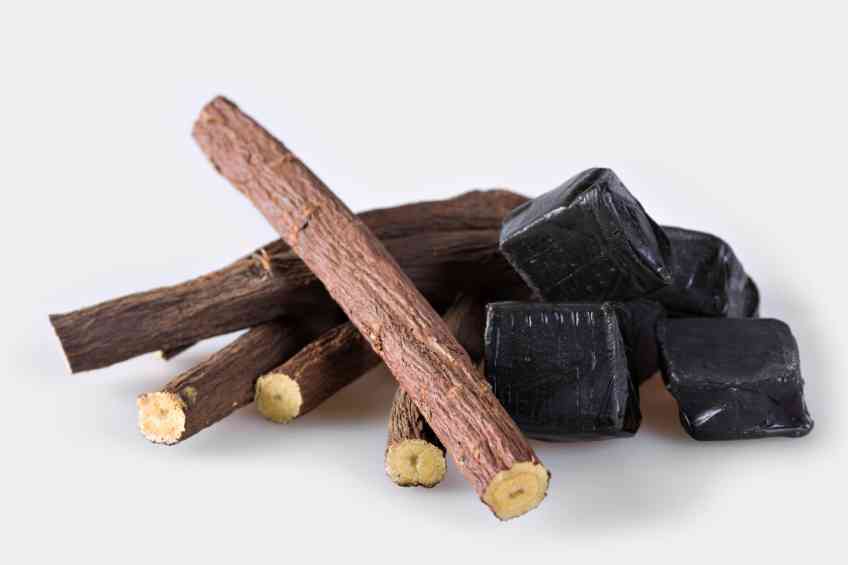The Skinny:
Most people probably think of licorice as something that comes in soft sticks of green or black candy. It’s deeper than that. The name, however, is derived from the Greek word glykoriza, meaning “sweet root.” The root comes from a flowering plant of the bean family Fabaceae that is seen in Western Asia, North Africa and Southern Europe. Now, here’s the sad part. Those red and black sticks so many love may not contain any licorice at all, which is unfortunate because licorice in its pure form can deliver a lot of spicy health benefits. Don’t fret, however. Licorice root can still be purchased in powdered, liquid and capsule form. It can be added to drinks or used as a food seasoning, so there at still easy ways to consume it. But be forewarned. For all its potential benefits, gobbling down too much of it, especially black licorice, over an extended period can lead to health issues. So, moderation is essential for cashing in on the health benefits of licorice. Read on.
The Slate:
Skin Health
Its roots contain glabridin, which can prevent dark pigmentation spots on the skin. It is often used in skin creams. Beyond this, the glycyrrhizin in licorice, which makes it taste sweet, is an antioxidant that can battle various skin issues such as atopic dermatitis, rosacea and psoriasis. Licorice may also help remedy eczema.
Shuts Down Oral Bacteria
Licorice has the power to act as an antibacterial that can offset tooth decay and gum disease. It contains licoricidin and licorisoflavan A, antibacterial substances that thwart oral tooth decaying germs like streptococcus mutans and streptococcus sobrinus, as well as porphyromonas gingivalis and fusobacterium nucleatum that cause gum disease.
Tummy Fix
One study found that licorice root was more effective at battling stomach problems than commonly used antacids. The research noted it was particularly effective in comparison against gastric reflux, heartburn, gastric or duodenal ulcer, irritable bowel syndrome and Crohn’s disease.
Softens Menopausal Discomfort
The roots contain flavonoids that help decrease the severity and duration of menopausal hot flashes. It might be encouraging for individuals worried about the link between estrogen supplements and breast cancer. Nonetheless, physicians should be consulted before any licorice therapy is undertaken.
Cough Aid
Licorice tea has been used as a cough remedy for decades if not centuries. Science indicates that there may be solid reasons behind this, as one study reported a 30 to 78 percent decline in cough frequency after consuming licorice extracts. The liquiritin apioside and liquiritin in licorice were believed to be responsible for the cough-suppressing and mucus-loosening properties.
Safety Note
For all its benefits, the Federal Drug Administration advises against consuming more than two ounces of black licorice daily over two weeks, especially for individuals over 40. The glycyrrhizic acid in the root can worsen hypertension and heart or kidney disease. It should also be avoided during pregnancy and breastfeeding.
Eyes Up:
Do you gobble licorice in any form? Tell us why at info@wellwellusa.com.
 WellWell editors independently identify services and products of interest. If readers purchase anything through the associated links, WellWell may earn a commission, which goes to support our work. Learn More.
WellWell editors independently identify services and products of interest. If readers purchase anything through the associated links, WellWell may earn a commission, which goes to support our work. Learn More.












